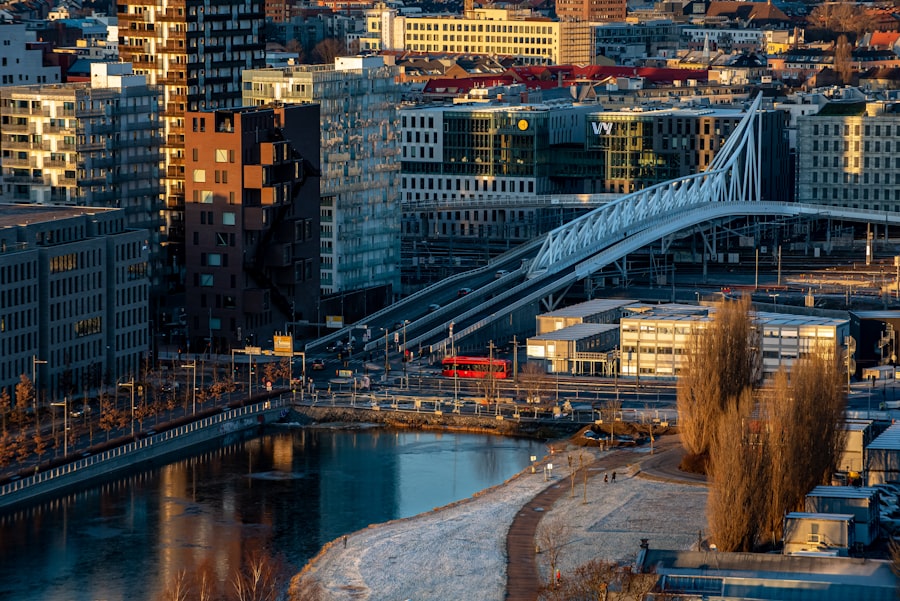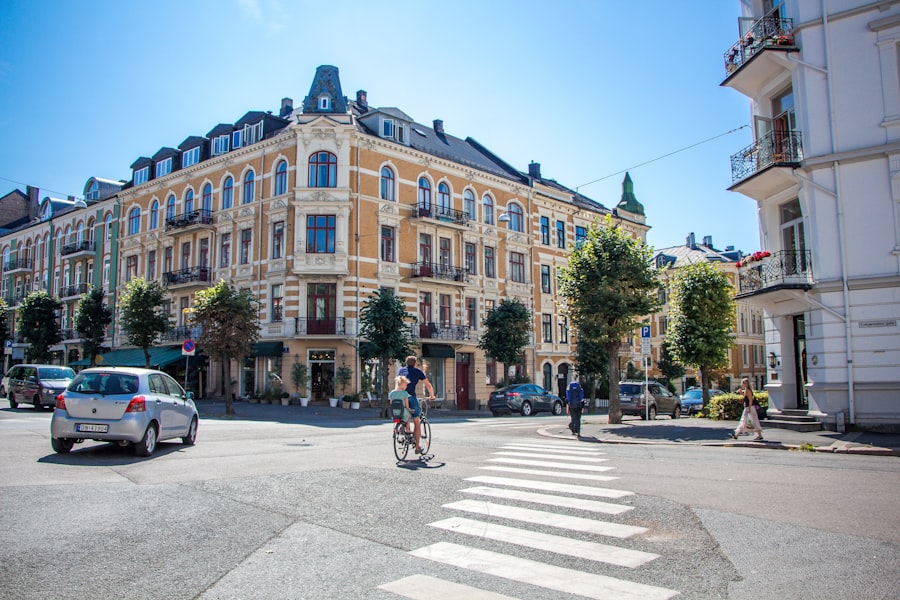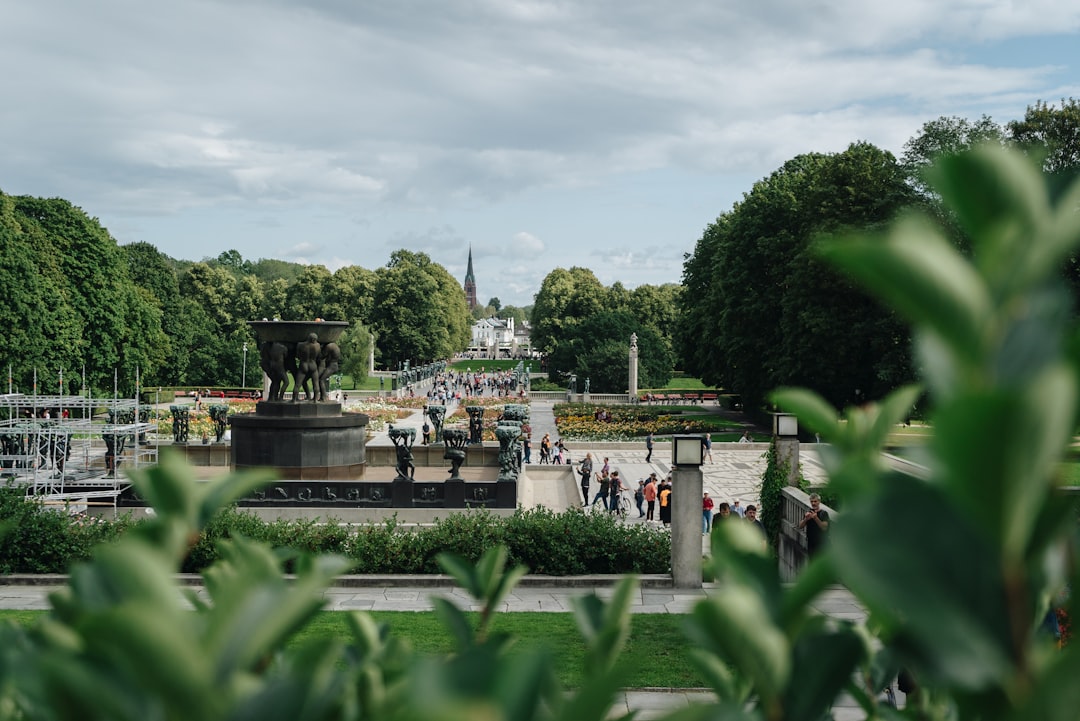The Norwegian property market is a unique landscape characterised by its stunning natural beauty, robust economy, and a high standard of living. Over the past few years, Norway has seen a steady increase in property prices, particularly in urban areas such as Oslo, Bergen, and Stavanger. This trend can be attributed to a combination of factors, including a growing population, a strong job market, and an influx of foreign investment.
As an expat considering purchasing property in Norway, it is essential to understand these dynamics to make informed decisions. Moreover, the Norwegian property market is known for its transparency and stability. The country has strict regulations in place to protect buyers and sellers alike, which contributes to a sense of security in real estate transactions.
However, it is important to note that the market can vary significantly from one region to another. For instance, while urban centres may experience rapid price growth, rural areas may offer more affordable options. Understanding these nuances will help expats navigate the market effectively and identify opportunities that align with their needs and preferences. Take the first step. Book a consultation with the Norway Relocation Group for your move to Norway.
Summary
- The Norwegian property market is stable and offers good investment opportunities for expats.
- Expats buying property in Norway must obtain a residency permit and a Norwegian identification number.
- Consider factors such as proximity to amenities, public transport, and schools when choosing the right location for your property in Norway.
- Budget for additional costs such as stamp duty, legal fees, and registration fees when buying a property in Norway.
- Expats buying property in Norway can explore financing options such as mortgages from Norwegian banks or international lenders.
Legal Requirements for Expats Buying Property in Norway
When it comes to purchasing property in Norway, expats must be aware of the legal requirements that govern such transactions. Fortunately, Norway is relatively open to foreign buyers, and there are no restrictions on non-residents purchasing property. However, it is crucial to understand the legal framework surrounding property ownership, including the need for a Norwegian personal identification number (personnummer) and a bank account in Norway.
These are essential for completing any property transaction and managing ongoing expenses. Additionally, expats should familiarise themselves with the concept of “freehold” versus “leasehold” properties in Norway. Freehold properties grant full ownership rights, while leasehold properties involve a long-term lease agreement with the landowner.
Understanding these distinctions is vital for making an informed decision about the type of property to purchase. It is also advisable for expats to seek legal counsel or consult with a real estate professional who can provide guidance on navigating the legal landscape effectively.
Finding the Right Location for Your Property in Norway

Choosing the right location for your property in Norway is a critical step in the buying process. The country offers a diverse range of environments, from bustling urban centres to serene coastal towns and picturesque mountain villages. Each location has its own unique charm and lifestyle offerings, making it essential for expats to consider their personal preferences and lifestyle needs when selecting a property.
For instance, Oslo, the capital city, is known for its vibrant cultural scene, excellent public transport, and proximity to nature. It is an ideal choice for those seeking an urban lifestyle with access to amenities and services. On the other hand, if you prefer a quieter environment with stunning natural landscapes, areas like Lofoten or Geiranger may be more appealing.
Ultimately, conducting thorough research on various locations and visiting them in person can help expats make an informed decision that aligns with their lifestyle aspirations.
Budgeting for Buying a Property in Norway
Budgeting is a crucial aspect of the property buying process in Norway. Expats must consider not only the purchase price of the property but also additional costs associated with buying real estate. These costs can include legal fees, registration fees, and property taxes, which can add up significantly.
It is advisable to create a comprehensive budget that accounts for all potential expenses to avoid any financial surprises down the line. Furthermore, it is essential to factor in ongoing costs such as maintenance fees, utilities, and insurance when budgeting for your new property. Understanding these financial commitments will help expats assess their overall affordability and ensure they are making a sound investment.
Additionally, seeking advice from financial advisors or real estate professionals can provide valuable insights into budgeting effectively for your property purchase.
Financing Options for Expats Buying Property in Norway
Financing options for expats looking to buy property in Norway can vary based on individual circumstances and financial institutions. While some banks may offer mortgage products specifically tailored for foreign buyers, others may have stricter lending criteria. It is essential for expats to research various banks and mortgage providers to find the best financing solution that meets their needs.
In general, most banks require a down payment of at least 15% of the property’s value for foreign buyers. However, this percentage may vary depending on the lender’s policies and the buyer’s financial profile. Additionally, expats should be prepared to provide documentation such as proof of income, employment contracts, and credit history when applying for a mortgage.
Engaging with a mortgage broker who understands the Norwegian market can also streamline the financing process and help expats secure favourable terms.
Understanding the Property Buying Process in Norway

The property buying process in Norway is relatively straightforward but requires careful attention to detail. Once you have identified a suitable property and agreed on a price with the seller, the next step involves signing a purchase agreement (kjøpskontrakt). This legally binding document outlines the terms of the sale and includes important details such as payment schedules and conditions for completion.
After signing the purchase agreement, buyers typically have a due diligence period during which they can conduct inspections and verify any necessary information about the property. Once all conditions are met, the final step involves registering the property with the Land Registry (Kartverket) to formalise ownership. It is advisable for expats to work closely with legal professionals or real estate agents throughout this process to ensure compliance with all regulations and smooth transaction completion.
Working with Real Estate Agents in Norway
Engaging with a real estate agent can significantly enhance your property buying experience in Norway. A knowledgeable agent can provide valuable insights into local market trends, assist with property viewings, and negotiate on your behalf. They can also help expats navigate the complexities of the buying process and ensure that all legal requirements are met.
When selecting a real estate agent, it is essential to choose someone who understands your specific needs and preferences as an expat buyer. Look for agents who have experience working with international clients and possess a deep understanding of the local market dynamics. Building a good rapport with your agent will facilitate effective communication and ultimately lead to a more successful property purchase.
Important Considerations for Expats Buying Property in Norway
As an expat looking to buy property in Norway, there are several important considerations to keep in mind. Firstly, understanding cultural differences and local customs can greatly influence your experience as a buyer. For instance, Norwegians tend to value transparency and honesty in negotiations, so being upfront about your intentions can foster trust between you and the seller.
Additionally, it is crucial to consider long-term factors such as potential resale value and future developments in the area you are considering. Researching local infrastructure projects or upcoming amenities can provide insights into how property values may change over time. By taking these factors into account, expats can make informed decisions that align with their long-term goals.
Taxes and Fees Associated with Buying Property in Norway
When purchasing property in Norway, it is essential to be aware of the various taxes and fees that may apply. One of the primary costs associated with buying real estate is the document fee (dokumentavgift), which is typically 2.5% of the property’s purchase price. This fee is payable upon registration of the property with the Land Registry.
In addition to the document fee, buyers should also consider other costs such as legal fees for drafting contracts and conducting due diligence. Property taxes (eiendomsskatt) may also apply depending on the municipality where the property is located. Understanding these financial obligations will help expats budget effectively and avoid any unexpected expenses during the buying process.
Tips for Negotiating the Purchase of a Property in Norway
Negotiating the purchase price of a property in Norway requires a strategic approach and an understanding of local market conditions. One effective tip is to conduct thorough research on comparable properties in the area to gauge fair market value. This information can serve as leverage during negotiations and help you make informed offers.
Additionally, being flexible with your terms can enhance your negotiating position. For instance, if you are willing to accommodate the seller’s timeline or make minor concessions regarding repairs or renovations, it may lead to more favourable terms overall. Building rapport with the seller or their agent can also create a positive atmosphere for negotiations and increase your chances of reaching an agreeable outcome.
Settling into Your New Property in Norway as an Expat
Once you have successfully purchased your new property in Norway, settling in as an expat involves more than just unpacking boxes. It is essential to familiarise yourself with your new neighbourhood and community resources available to you as a resident. Engaging with local organisations or expat groups can provide valuable support as you navigate this transition.
Moreover, taking time to explore your surroundings will help you appreciate all that Norway has to offer—from its breathtaking landscapes to its rich cultural heritage. Embracing local customs and traditions will not only enhance your experience but also foster connections within your new community. As you settle into your new home, consider enrolling in Norwegian language courses at institutions like NLS Norwegian Language School in Oslo.
These courses are designed specifically for expats looking to improve their language skills while immersing themselves in Norwegian culture—an invaluable step towards fully integrating into your new life in Norway. In conclusion, buying property in Norway as an expat presents both opportunities and challenges that require careful consideration and planning. By understanding the local market dynamics, legal requirements, budgeting effectively, exploring financing options, navigating the buying process diligently, working with experienced real estate agents, being mindful of taxes and fees, negotiating wisely, and embracing your new community through language courses at NLS Norwegian Language School in Oslo, you can ensure a successful transition into your new home while enjoying all that this beautiful country has to offer.
Learn more about the Norwegian classes at the NLS Norwegian Language School in Oslo

